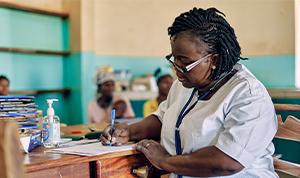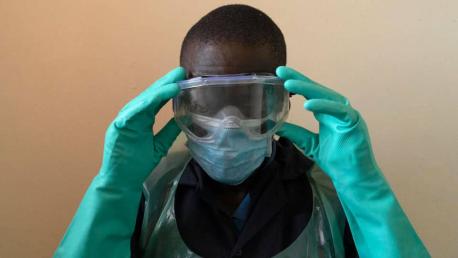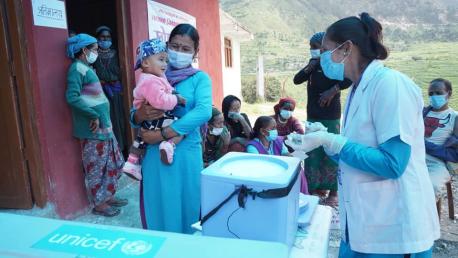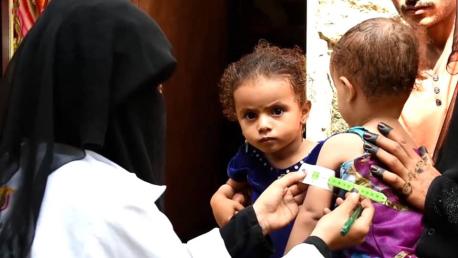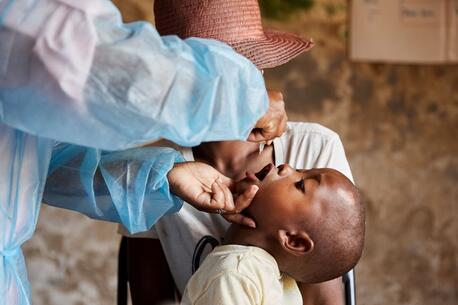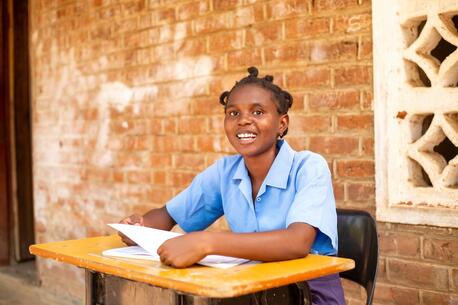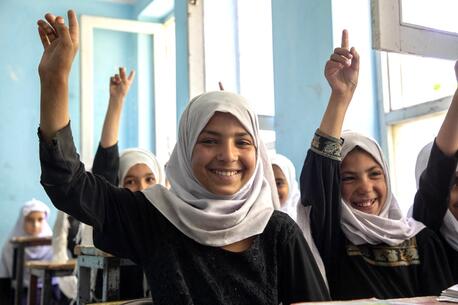
Every Child
Educated
Through community-based schools, both in-person and remote learning support and other programs, UNICEF has helped tens of millions of out-of-school children continue their education, reaching more and more children every year.
Kids need UNICEF more than ever:
- Learning poverty has deepened in recent years. Well over half of children in low- and middle-income countries leave primary school unable to read and understand a simple story.
- Conflict and displacement, disease outbreaks, natural disasters and other disruptions have heightened the risks of kids dropping out of school permanently.
- Climate crises such as severe drought in the Horn of Africa have pushed millions of families deeper into poverty, increasing economic pressures that lead children to go to work instead of school.
- When children are not in school, their health and well-being suffers. In many parts of the world, school is where children get health care, immunizations and their one nutritious meal of the day. Girls who are not in school are often forced into early marriage.
Meet Kabiligi Feniace, a teacher in Rwanda
Why donate to UNICEF? It's a smart way to make your money go further for children:
- UNICEF looks out for the most marginalized students: UNICEF makes sure that children in emergency situations can access education — including migrant and refugee children. In 2022, UNICEF helped nearly 38 million out-of-school children — 49 percent of them girls — access education, including 18.6 million children in humanitarian settings and 3.1 million children on the move.
- UNICEF is an innovator: While schools were closed during the pandemic, UNICEF helped millions of students continued their education with Learning Passport, an innovative digital education platform developed in collaboration with Microsoft. The platform was rapidly scaled to serve children displaced by the war in Ukraine, and continues to expand to help improve the quality of classroom instruction in formal school settings.
- UNICEF knows connectivity is power: UNICEF is a partner in Giga, a joint initiative of UNICEF’s Office of Innovation and ITU’s Telecommunications Development Bureau to connect every school in the world to the internet; the team is working with governments, industry leaders, like UNICEF USA partner Dell Technologies and nonprofits to provide millions of learners with free access to online educational content.
- UNICEF supports girls’ rights and their futures: UNICEF works with governments and local partners to improve girls' enrollment in early learning, primary and secondary education and to create more gender-equitable education systems.
- UNICEF sets kids up for success: Helping children feel prepared and empowered to learn is a big part of UNICEF’s mission in education. Tens of millions of students in dozens of countries receive learning materials from UNICEF and benefit from UNICEF-supported skills development programs every year.
- UNICEF levels the playing field: millions of impoverished households benefited from cash assistance that helped them cover their basic needs, relieving the economic pressures that can force children to go to work instead of school.
- UNICEF prioritizes the education of children with disabilities: Teacher training has helped make inclusive education a reality for children with disabilities in 54 percent of the countries where UNICEF works.
Meet UNICEF Workers Helping Kids Around the World
UNICEF: Saving and Changing Lives
Thirteen-year-old Nanyonjo attended primary school in Eastern Uganda before COVID-19 lockdowns forced her to start listening to her math, science and English lessons on the radio. But thanks to an educational technology system UNICEF installed at her school, Nanyonjo has taken her education into her own hands.
